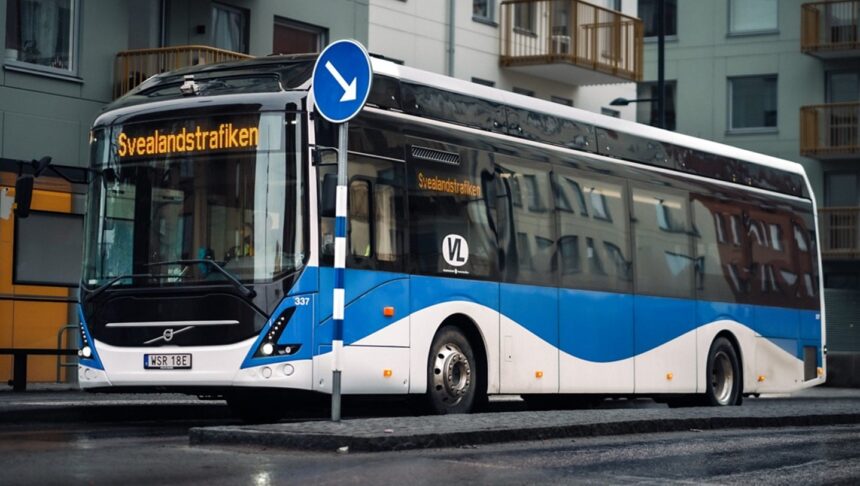Volvo Buses, in partnership with Swedish public transport companies VL and Svealandstrafiken VL, is set to launch a trial of an innovative self-driving support system for bus drivers in Västerås, Sweden. This new system, developed by Volvo Buses, is part of the EU eBRT2030 project, which aims to establish sustainable and commercial autonomous solutions.
After successful testing in controlled environments, the technology will now be tested under real-world conditions using a Volvo 7900 Electric bus on route 1 in Västerås. The project lead at Volvo Buses, Joakim Jonsson, stated that while fully self-driving buses without safety drivers are still a distant future prospect, the new technology can add value in various areas today. The system aims to minimize monotonous tasks for drivers, improve their working environment, reduce wear and damage to buses, enhance passenger comfort, and increase road safety.
The six-month trial is expected to begin in the spring of 2025. The self-driving support system is designed to autonomously navigate buses into and out of bus stops, aiming to reduce driver stress, improve passenger safety and comfort, and lessen environmental impact. By standardizing bus movement patterns and automating the process of entering and exiting bus stops, the system allows drivers to focus more on surrounding traffic, potentially reducing physical strain.
Svealandstrafiken’s head of technology and innovation, Geert Schaap, highlighted the advantages of the self-driving support system for bus drivers and operators. The technology is expected to reduce wear and damage to tires, leading to cost savings and a lower environmental impact. Additionally, potential applications include autonomously driving vehicles to the wash bay or charging area in the bus depot to increase efficiency.
A scientific study conducted in partnership with Chalmers University of Technology will evaluate the experience of both drivers and passengers during the trial. Recently, Svealandstrafiken ordered 73 electric buses from Volvo Buses to replace older models and expand services in Västerås, following the successful operation of 17 Volvo electric buses in the city.
Overall, the trial of the self-driving support system for bus drivers in Västerås represents a significant step towards incorporating autonomous solutions in public transport systems. It aims to enhance driver and passenger experience, reduce environmental impact, and increase efficiency in bus operations. The collaboration between Volvo Buses and Swedish transport companies highlights the commitment to innovation and sustainability in the public transport sector.





